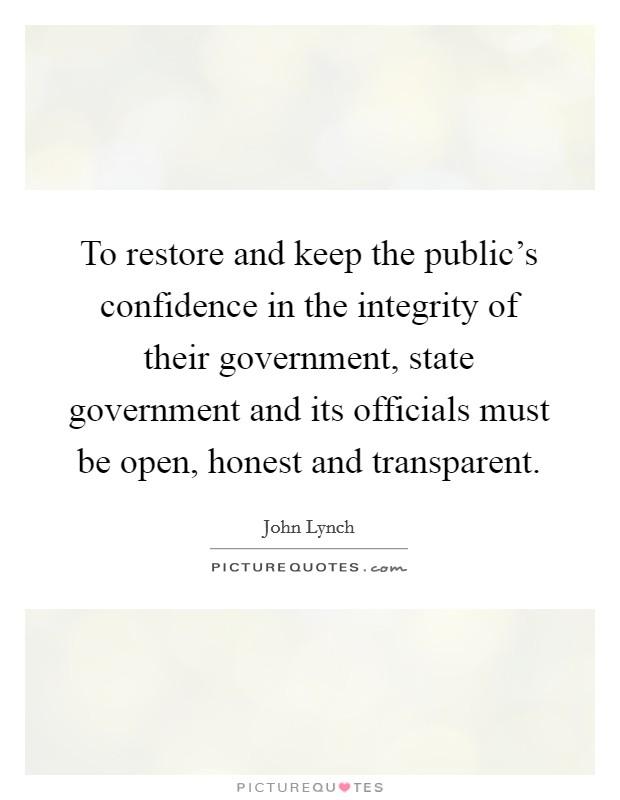Blog
-
God is our Fortress
- On 03/03/2023
- In Special Report
 God our creator knows our thoughts,difficulities and needs. Let us rely on HIM in all situations.
God our creator knows our thoughts,difficulities and needs. Let us rely on HIM in all situations. 1(To the chief Musician, A Psalm of David.) O LORD, thou hast searched me, and known me. 2 Thou knowest my downsitting and mine uprising, thou understandest my thought afar off. 3 Thou compassest my path and my lying down, and art acquainted with all my ways. 4 For there is not a word in my tongue, but, lo, O LORD, thou knowest it altogether. 5 Thou hast beset me behind and before, and laid thine hand upon me. 6 Such knowledge is too wonderful for me; it is high, I cannot attain unto it. 7 Whither shall I go from thy spirit? or whither shall I flee from thy presence? 8 If I ascend up into heaven, thou art there: if I make my bed in hell, behold, thou art there. 9 If I take the wings of the morning, and dwell in the uttermost parts of the sea; 10 Even there shall thy hand lead me, and thy right hand shall hold me. 11 If I say, Surely the darkness shall cover me; even the night shall be light about me. 12 Yea, the darkness hideth not from thee; but the night shineth as the day: the darkness and the light are both alike to thee.
-
2nd Term-NLC's Presence in Oyo Gov.'s Campaigns a show of Appreciation-NLC Secretary
- On 03/03/2023
- In Special Report
 The Oyo state council of the Nigeria Labor Congress has declared that some of its members decided to feature prominently in the second term campaign of the state Governor as a show of appreciation for meeting their demands.
The Oyo state council of the Nigeria Labor Congress has declared that some of its members decided to feature prominently in the second term campaign of the state Governor as a show of appreciation for meeting their demands. This declaration was made by the secretary of the nlc, Comrade Adebayo Aritbatishe.
''The Governor has responded to their demands and they go in groups to campaign venues to show appreciation for what the Governor has done for them. It should be noted that affiliates of the union have various agitations and demands. These demands are tailored through the Joint Negotiation Committee(JNC). And when such demands or agitations are met, it is only proper to show appreciation. They have every right as affiliates.'' Comrade Artibatise also disclosed that the state Governor has paid three out of the five-month unremitted union dues deductions, adding,'' he has promised to pay the remaining at the end of the month.''
-
God Speaks to Us
- On 19/02/2023
- In Special Report
 God always speaks to us through His Word, through the apostles and other faithful servants of old. Deuteronomy 30 : 1-20
God always speaks to us through His Word, through the apostles and other faithful servants of old. Deuteronomy 30 : 1-20 1And it shall come to pass, when all these things are come upon thee, the blessing and the curse, which I have set before thee, and thou shalt call them to mind among all the nations, whither the LORD thy God hath driven thee, 2 And shalt return unto the LORD thy God, and shalt obey his voice according to all that I command thee this day, thou and thy children, with all thine heart, and with all thy soul; 3 That then the LORD thy God will turn thy captivity, and have compassion upon thee, and will return and gather thee from all the nations, whither the LORD thy God hath scattered thee. 4 If any of thine be driven out unto the outmost parts of heaven, from thence will the LORD thy God gather thee, and from thence will he fetch thee: 5 And the LORD thy God will bring thee into the land which thy fathers possessed, and thou shalt possess it; and he will do thee good, and multiply thee above thy fathers. 6 And the LORD thy God will circumcise thine heart, and the heart of thy seed, to love the LORD thy God with all thine heart, and with all thy soul, that thou mayest live. 7 And the LORD thy God will put all these curses upon thine enemies, and on them that hate thee, which persecuted thee. 8 And thou shalt return and obey the voice of the LORD, and do all his commandments which I command thee this day. 9 And the LORD thy God will make thee plenteous in every work of thine hand, in the fruit of thy body, and in the fruit of thy cattle, and in the fruit of thy land, for good: for the LORD will again rejoice over thee for good, as he rejoiced over thy fathers: 10 If thou shalt hearken unto the voice of the LORD thy God, to keep his commandments and his statutes which are written in this book of the law, and if thou turn unto the LORD thy God with all thine heart, and with all thy soul. 11 For this commandment which I command thee this day, it is not hidden from thee, neither is it far off. 12 It is not in heaven, that thou shouldest say, Who shall go up for us to heaven, and bring it unto us, that we may hear it, and do it? 13 Neither is it beyond the sea, that thou shouldest say, Who shall go over the sea for us, and bring it unto us, that we may hear it, and do it? 14 But the word is very nigh unto thee, in thy mouth, and in thy heart, that thou mayest do it. 15 See, I have set before thee this day life and good, and death and evil; 16 In that I command thee this day to love the LORD thy God, to walk in his ways, and to keep his commandments and his statutes and his judgments, that thou mayest live and multiply: and the LORD thy God shall bless thee in the land whither thou goest to possess it. 17 But if thine heart turn away, so that thou wilt not hear, but shalt be drawn away, and worship other gods, and serve them; 18 I denounce unto you this day, that ye shall surely perish, and that ye shall not prolong your days upon the land, whither thou passest over Jordan to go to possess it. 19 I call heaven and earth to record this day against you, that I have set before you life and death, blessing and cursing: therefore choose life, that both thou and thy seed may live: 20 That thou mayest love the LORD thy God, and that thou mayest obey his voice, and that thou mayest cleave unto him: for he is thy life, and the length of thy days: that thou mayest dwell in the land which the LORD sware unto thy fathers, to Abraham, to Isaac, and to Jacob, to give them.
-
U.S. Citizen Sentenced to 30 Months in Prison for Conspiring to Provide Electronic Equipment and Technology to the Government of Iran
- On 15/02/2023
- In News
Defendant Conspired to Illegally Export U.S. Goods and Technology Without Required Export Licenses
Earlier today, in federal court in Brooklyn, Kambiz Attar Kashani, a dual citizen of the United States and Iran, was sentenced by United States District Judge Eric R. Komitee to 30 months’ imprisonment for conspiring to illegally export U.S. goods, technology, and services to end users in Iran, including the Government of Iran, in violation of the International Emergency Economic Powers Act (IEEPA). The defendant has agreed to pay a $50,000 fine. Kashani pleaded guilty to the charge in June 2022.
Breon Peace, United States Attorney for the Eastern District of New York, Matthew G. Olsen, Assistant Attorney General for the Justice Department’s National Security Division, and Joseph R. Bonavolanta, Special Agent-in-Charge, Federal Bureau of Investigation, Boston Division (FBI), announced the sentence.
“Kashani defied export restrictions and sanctions against Iran, a country that sponsors international terrorism,” stated United States Attorney Peace. “His scheme undermined U.S. foreign policy and national security interests, and warranted a substantial sentence of incarceration to deter others.”
“Kashani conspired to illegally export U.S. goods and technology for the benefit of the Central Bank of Iran, a designated entity that materially supports known terrorist organizations,” said Assistant Attorney General Olsen. “The Department remains vigilant against any efforts to circumvent our export control laws, which exist to protect the security of the United States and its people.”
“Kambiz Attar Kashani will now head to prison for strengthening the economy of one of the world’s most infamous state sponsors of terrorism to line his own pockets, while circumventing U.S. laws in place to protect our national security interests. He used two United Arab Emirates companies to procure items from multiple American technology companies, including one located right here in Massachusetts,” said Special Agent in Charge of the FBI Boston Division Bonavolonta. “Today’s sentencing should send a strong message that the FBI and its law enforcement partners will continue to pursue and hold accountable those individuals who illegally export our country’s sensitive information and technology to hostile nations such as the Government of Iran.”
Between February 2019 and June 2021, Kashani conspired to illegally export goods and technology to end users in Iran, including the Central Bank of Iran (CBI). The U.S. government recognizes CBI as an agency of the Government of Iran and the U.S. Department of the Treasury’s Office of Foreign Assets Control (OFAC) has classified it as a Specially Designated National (SDN) acting for or on behalf of a terrorist organization. According to the U.S. government, CBI has materially assisted, sponsored and provided financial, material or technological support, goods or services to Lebanese Hizballah, a terrorist organization, and to the Qods Force of Iran’s Islamic Revolutionary Guards Corps (IRGC), which is a branch of the Iranian armed forces and represents the primary means of the Government of Iran to direct and implement its global terrorism campaign.
Kashani and his co-conspirators perpetrated the illegal transshipping scheme through two separate United Arab Emirates (UAE) companies. They used the UAE companies to procure electronic goods and technology from multiple U.S. technology companies, including one located in Brooklyn, for end users in Iran, including CBI, without obtaining required OFAC export licenses. Certain of the goods and technology Kashani and his co-conspirators transshipped were classified by the U.S. Department of Commerce’s Bureau of Industry and Security as information security items subject to national security and anti-terrorism controls. Kashani and his co-conspirators intentionally concealed from the U.S. companies that they intended to send the items to Iran, falsely claiming that the UAE companies would be the ultimate end users.
As set forth in court papers, by providing the Government of Iran and end users in Iran with sophisticated, top-tier U.S. electronic equipment and software, the defendant and his co-conspirators enabled the Iranian banking system to operate more efficiently, effectively, and securely. In doing so, the defendant and his co-conspirators likely helped strengthen Iran’s economy and provided faster and more secure access to funds that enable the Government of Iran to further priorities including its nuclear program and terrorist agenda – exactly what the U.S. sanctions against Iran were intended to prevent.
The government’s case is being handled by the Office’s National Security and Cybercrime Section. Assistant United States Attorneys Alexander A. Solomon and Meredith A. Arfa are in charge of the prosecution, with assistance provided by Trial Attorney S. Derek Shugert of the Justice Department’s Counterintelligence and Export Control Section.
Defendant:
Kambiz Attar Kashani
Age: 45
United Arab EmiratesSource-FBI
-
Scrap Ezendigbo Title-Ibadan Residents and Indigenes Suggest
- On 15/02/2023
- In News
 Concerned residents and indigenes of Ibadan, Oyo state have called on the Olubadan of Ibadanland, Oba Lekan Balogun,Alli Okunmade II, to, as a matter of urgency, scrap the title of Ezendigbo of Ibadanland.
Concerned residents and indigenes of Ibadan, Oyo state have called on the Olubadan of Ibadanland, Oba Lekan Balogun,Alli Okunmade II, to, as a matter of urgency, scrap the title of Ezendigbo of Ibadanland. They hinged their call on the attempt to desecrate the position of the Olubadan.
''We call on the Olubadan of Ibadanland, Oba Lekan Balogun to urgently scrap the title of Ezendigbo of Ibadan. If you are observant, they are covertly working to bring the Olubadan position to ridicule. In addition, the activities of the Ezendigbo should be comprehensively probed for the good of society'', they stated.
In most recent times, there has been an upsurge in lawlessness and all forms of criminality in several communities in the state capital.
However, those-in-authority are either complicit or lack the will to convincingly put an end to the ugly situation.
The Balogun Nidgbo of Ibadan land, Chief Alloysious Obi, had in an interview with The Sun accused Eze(Dr.)Alozie of desecrating the stool of Olubadan with the conferment of a chieftaincy title of Ezi Ogo Ukwu N’digbo Nala on Oba Balogun.
''He said: “I found it ridiculous that an individual would just wake up and say he is conferring a chieftaincy title on the occupant of the revered stool of Olubadan. For Anozie to do such, it is nothing but desecration of the Olubadan stool and it should be condemned by those who mean well for Ibadanland. It is my candid view that the people of Ibadanland should, this time around, come together and put a stop to what I can only describe as an insult to the Olubadan stool, as I know that Igbos have great respect for traditional institutions.”
However, in his reaction, the Eze Ndigbo of Ibadan and Oyo state Eze(Dr.) Alex Anozie insisted that his detractors were at work, explaining that he gave the Olubadan an award and not a chieftaincy title.
''Because of the love and understanding between us, Ndigbo and Kabiyesi Olubadan of Ibadanland and Ibadan people, we decided to give an award to Olubadan in appreciation for our cordial relationship and because he is our in-law as he is married to one of our daughters. So we gave him an award and this matter, that same yesterday, 14th February, I was called and myself and my council members held a meeting with the Olubadan-in-Council and a satisfactory explanation has been given and the matter has been resolved . The Igbos and Ibadan people and the whole Yoruba race have been living peacefully. All that we did was to show love and appreciation for all that has been happening between the two ethnic groups. But we know that detractors are behind all the noise, but thank God the matter was resolved yesterday. We know that our detractors are the ones fanning the members of hatred unnecessarily,'' Eze(Dr.) Anozie concluded.
-
Unfolding events are signs that Labor leaders have Compromised-Former Oyo TUC Chairman
- On 06/02/2023
- In News
The prolonged silence by labor leaders in Nigeria that has trailed the lingering fuel scarcity and the Naira re-design controversy has been described as a good sign that the union leaders have compromised.
This assertion was made by a former chairman of the Oyo state council of the Trade Union Congress, Comrade Andrew Emelieze.
''The labor leaders are supposed to make statements that would make the Federal Government reverse some of its policies that are anti-people. This is not so.There is fuel scarcity and people are not able to access their money in the banks because of the anti-people policies of the Federal Government. But this would be very difficult considering the hidden benefits the labor leaders are enjoying from other political parties, but it is impossible , they should have a change of heart. The Nigerian workers have been visited with unexpected hardship and confusion has been the order of the day. Our people have never had it this bad. Besides, mass hunger and poverty is now with us in the land and our people are murdered daily in cold blood. The Nigerian workers, unemployed and the retirees are the worse hit,'' Comrade Emelieze concluded.
Similarly, Nigerians have expressed anger and disgust over the unbecoming attitude of several Point of Sale Operators, who now sell both the old and new naira notess, while the staff of the money deposit banks have continued to make covert gains from the present situation.
In his reaction, the Secretary of the Oyo state wing of the Nigeria Union of Teachers(NUT), Comrade Oukayode Salami lamented that teachers were among poor Nigerians that are at the receiving end of the Federal Government's policies.
''It is an issue that affects all of us, even teachers are among poor Nigerians at the receiving end of the Federal Government's policies. Teachers now find it difficult getting to work. These government policies have crippled the source of livelihood of millions of Nigerians. We want the government to rise to the occasion and reduce the hardships.''
In the same vein,the Central Bank of Nigeria(CBN) has been called upon to ensure that there is adequate supply of the newly redesigned Naira notes within the period of extension of the deadline.This call was made recently by the chairman of the Non-Academic Staff and Associated Unions(NASU) University College Hospital(UCH)Ibadan, Nigeria, Comrade Kehinde Abiona.
''The policy is a welcome development because of what it is out to address. There is this notion that almost all the government policies are good, but the challenge arises during the implementation stage in addition to those responsible for the implementation. A lot of Nigerians who need money for their daily transactions are unable to access the new naira notes. They are passing through pains and agonies. I feel the pains and sufferings of people. The CBN should ensure that there is adequate supply of the new naira notes within the extension period, otherwise the situation may not improve but go from bad to worse,'' Comrade Abiona stated.
-
Naira Redesign-Govt Officials are not Devoted to Duty-Former Oyo TUC Chairman
- On 31/01/2023
- In News
 The hitches trailing the introduction of the new Naira notes in Nigeria has exposed the lack of devotion to duty by certain government officials and the dubious attitude of staff of some banks.
The hitches trailing the introduction of the new Naira notes in Nigeria has exposed the lack of devotion to duty by certain government officials and the dubious attitude of staff of some banks. This assertion was made on Monday by a former chairman of the Oyo state council of the Trade Union Congress(TUC), Comrade Andrew Emelieze.
''The Naira redesign is an indictment on certain officials of government who have not been diligent in their duties and a number of staff in banks who are duboius and questionable. As a matter of fact, Nigerians are now in great doubt of the real motive behind the Naira redesign. The apex bank should not be used to achieve sinister motives, it could be counter productive'', Comrade Emelieze stated.
-
Naira Redesign-Deadline in Order but......-Prof. Olagoke
- On 30/01/2023
- In Special Report
 The Central Bank of Nigeria(CBN) has insisted that the January 31st deadline for the invalidation of the old naria notes remains unchanged.
The Central Bank of Nigeria(CBN) has insisted that the January 31st deadline for the invalidation of the old naria notes remains unchanged.However, the Federal House of Representatives and the Senate want the apex bank to extend the deadline to 30th June, for the benefit of millions of Nigerians. Interestingly, a sizable number of Nigerians who have handled the new notes have expressed disappointment and dissatisfaction with the quality of the new notes compared to the old ones.
In his reaction, the Founder, Spiritual Head and Grand Imam of Shafasudeen-in-Islam worldwide, Prof. Sabitu OlagokeJP, opines that the deadline for the withdrawal of the 200, 500 and 1,000 Naira notes is in order, but warns that this could result in negative consequences. Excerpts:
What is your reaction to the insistence of the CBN that the January 31st deadline remains unchanged for the invalidation of the old naira notes?
First and foremost, we should not lose sight of the purpose of the introduction of the new Naira notes, which which is to curb the excesses of politicians and to ensure that the Independent National Electoral Commission(INEC) conducts free, fair and credible elections.
This will usher in the truly chosen ones for the next political dispensation. Vote buying has always been the bane of our struggle to have genuine representatives in power, making the efforts and the huge amount being spent on the election be without impact.
The January 31st deadline by the CBN, therefore, must have been informed by the advice of its in-house economic experts.
This advice may revolve around the need to curb the spending tendencies of politicians before, during and after the elections.
To be fair to the CBN, 80 per cent of Nigeria's money in circulation is outside the box of control of the apex bank.
However, the following challenges must be addressed without losing focus of the objectives for introducing the new naira notes:
1)Nigerians, particularly traders across the country o are feeling the impact of the unavailability of the new naira notes.
2)There are also challenges to getting old naira notes into the banking system.
3) Businesses are shutting down and markets are operating at a reduced capacity as the deadline for the collection of the old naira notes is near.
4)The new notes are not easily accessible presently.
ATM machines are still dispensing the old notes.
I believe that the January 31st deadline should remain and that Nigerians should bear and cope with the scramble that comes with such changes.
Stemming from all the accompanying negative developments that have trailed the naira redesign, further efforts to cushion the effects of poverty and hunger must be intensified to be able to achieve rational changes for which the new naira notes are designed.
